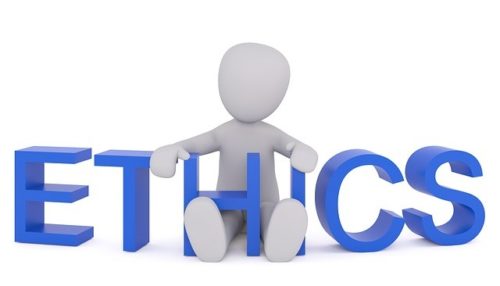- Courses Include:
-
6 Credit Corporate Bundle with Ethics Esquire CLE is an Approved Pennsylvania Provider The Supreme Court of Pennsylvania Board on Continuing Legal Education of CLE course Provider #9745
-
6 Credit Intellectual Property Bundle with Ethics
-
A Lawyer's Guide to Raising Capital In this timely, and compelling, CLE program attorney, Todd Kulkin, presents “A Lawyer’s Guide to Raising Capital”. The program begins with an overview of business fundraising and the types of capital and sources. The program continues with an introduction to private placements. Mr. Kulkin then provides a discussion of new crowdfunding regulations and valuation considerations. The program concludes with how to create a great pitch deck. This program is for any attorney who needs to raise capital or or has clients who need to raise capital. Agenda:
- Introduction to business fundraising
- Types of capital and sources
- Introduction to Private Placements
- Discussion of new crowdfunding regulations
- Valuation considerations
- Creating a great pitch deck
-
A Lawyer’s Guide to Ethics and Ethical Networking in a Virtual World As an attorney, you are in the business of relationships. Whether you are in a big law firm that has to participate in “Beauty Contests” (RFPs) or a solo practitioner, whether you are a new attorney, a mid-level associate or managing partner, people do business with People “they know, like and trust.” The relationships you create will allow you to build the practice you want and networking is still the best way to create those relationships. You will specifically learn: How to define networking in new way Why networking is the best way to become a Rainmaker What skills you can learn networking that will benefit every area of your practice Where to network for the best results How to work a room Fun tips and tricks to use to break the ice How to network if you are an introvert An overview of how use social media for networking purposes The Rules of Professional Conduct you need to know to keep your networking ethical as well as interesting
-
Alabama 6 Credit Bundle with 1 Ethics - All Courses Approved in Alabama Welcome to the NFL, Rook! Lawyers Wrangling Elites & Egos (1.5 Credits) Civil Settlement Techniques (1.5 Credits) Religious Land Use and Institutionalized Persons Act (2 Credits) Ethical Obligations for Clients with Mental Health Impairments (1 Ethics Credit)
-
Alaska 3 Credit Ethics Bundle Attorney, Kyle Robinson, Esq. presents “Attorney Conduct, Ethics,and Professionalism”. In this riveting and compelling program, Attorney, Kyle Robinson explains the Rules of Professional Responsibility and Ethical rules attorneys must know. This CLE program is a broad overview of the rules and explains ethical nuances. Mr. Robinson starts the discussion with the history of the Model rules and then discusses the lawyers preamble. He then systematically goes through important ethical rules and dissects the meaning of each rule. Timely subjects such as social media concerns and investigators are covered. The programs also covers, misconduct, communication, and misrepresentation. This three Credit program is a must listen for any attorney who wants to expand their knowledge of ethics and professionalism and earn CLE credits along the way!
-
In this timely, and compelling, CLE program, attorney Michael J. Deblis Presents, “Anatomy of a Civil Tax Controversy” Join attorney Deblis as he walks you through the anatomy of a civil tax controversy from A through Z. This program will cover each step in the process, and will take a closer look at what to do during an eggshell audit. Other topics to be discussed include cases typically recommended for prosecution, attorney-client privilege in the tax realm, Kovel Agreements, IRS Appeals, and more. This program is a must for any attorney Learning Objectives In-depth overview of the anatomy of a civil tax controversy from A through Z Best practices for walking your client through an eggshell audit A Review attorney-client privilege in the tax realm Discuss the use of a Kovel Accountant and drafting an airtight Kovel Agreement A Comprehension of the IRS Appeals Process Evaluate the hazards of litigation
-
In this timely, and compelling, CLE program attorney, Todd Kulkin, presents “Anti Money Laundering for Business Lawyers”. The program begins with an overview of money laundering basics and why attorneys should care about money laundering. The program continues with an in-depth look at statues and regulations. Mr. Kulkin then provides an explanation of shell corporations, special purpose entities, and how to mitigate your risk. The program concludes with an AML transaction checklist discussion. This program is for any attorney who’s in business or has clients in business. Agenda:
- Money Laundering Basics
- Why Care about AML?
- Statutes & Regulations
- Shell Corporations vs Special Purpose Entities
- Know Your Customer (“KYC”) considerations
- Mitigating Your Risk
- AML Transactional Checklist
-
Arizona Bundle 15 Credits including 3 Ethics and Professional Credits
Bundle Courses:
Lemon Law (1 Credit) Intervention Strategies for Helping the Legal Professional (1 Ethics Credit) Everything You Want to Know About Distressed Lawyers (1 Ethics Credit) Civil Settlement Techniques (1.5 Credits) Malpractice Actions: Elements and Defenses (1.5 Credits) Ethical Obligations for Clients with Mental Health Impairments (1 Ethics Credit)Navigating Stormy Parenting Plans - Process Over Chaos (1 Credit)
Estates for Personal Injury Litigators (1 Credit)
Religious Land Use and Institutionalized Persons Act (2 Credits) Virtual Isolation: Is Hyperconnectivity Helping or Harming the Legal Professional? (1 Credit) Microsoft Office 365 For Attorneys (1 Credit) Anatomy of a Civil Tax Controversy (1.5 Credits) The Healthcare Quality Improvement Act: How to Achieve Immunity in Your Peer Review Process (1 Credit) The State Bar of Arizona does not approve or accredit CLE activities for the Mandatory Continuing Legal Education requirement. This activity may qualify for up to 15 hours toward your annual CLE requirement for the State Bar of Arizona, including 3 hour(s) of professional responsibility. -
Arizona Bundle 15 Credits including 3 Ethics and Professional Credits
Bundle Courses:
Lemon Law (1 Credit) Intervention Strategies for Helping the Legal Professional (1 Ethics Credit) Everything You Want to Know About Distressed Lawyers (1 Ethics Credit) Civil Settlement Techniques (1.5 Credits) Malpractice Actions: Elements and Defenses (1.5 Credits) Ethical Obligations for Clients with Mental Health Impairments (1 Ethics Credit)Navigating Stormy Parenting Plans - Process Over Chaos (1 Credit)
Estates for Personal Injury Litigators (1 Credit)
Religious Land Use and Institutionalized Persons Act (2 Credits) Virtual Isolation: Is Hyperconnectivity Helping or Harming the Legal Professional? (1 Credit) Microsoft Office 365 For Attorneys (1 Credit) Anatomy of a Civil Tax Controversy (1.5 Credits) The Healthcare Quality Improvement Act: How to Achieve Immunity in Your Peer Review Process (1 Credit) The State Bar of Arizona does not approve or accredit CLE activities for the Mandatory Continuing Legal Education requirement. This activity may qualify for up to 15 hours toward your annual CLE requirement for the State Bar of Arizona, including 3 hour(s) of professional responsibility. -
Arizona 3.0 Ethics Credit Bundle Bundle Courses Include: Unauthorized Practice of Law: Ethical Dilemmas and the Rule of Law (1 Ethics Credit) Effective and Ethical Use of Experts (1 Ethics Credit) Attorney Licensure and the Impaired Professional (1 Ethics Credit) The State Bar of Arizona does not approve or accredit CLE activities for the Mandatory Continuing Legal Education requirement. This activity may qualify for up to 3 hours toward your annual CLE requirement for the State Bar of Arizona, including 3 hour(s) of professional responsibility.
-
Arizona Grand Canyon 15 Credit Bundle with Ethics Bundle Courses Include: Overview of the Freedom of Information Act (2 Credits) Fair Debt Collection Practices Act (1 Credit) Opening Statement As a Story (101) - (1 Credit) Opening Statements As a Story - 102 (1.5 Credits) Closing Arguments (1.75 Credits) Anatomy of a Civil Tax Controversy (1.5 Credits) NCAA & Name, Image, Likeness – Updates & Anarchy in America! (1.25 Credits) Paying for Referrals: A Danger to the Payor and Recipient's Freedom (1.25 Credits) The Anti-Kickback Statute (1 Credit) Effective and Ethical Use of Experts (1 Ethics Credit) The Impact Of Internet and Sports Betting for Lawyers (1 Ethics Credit) Unauthorized Practice of Law: Ethical Dilemmas and the Rule of Law (1 Ethics Credit) All Esquire CLE Arizona Bundle courses confirm with the State Bar of Arizona CLE requirements: http://www.azbar.org/cleandmcle/mcle/frequentlyaskedquestionsaboutmcleinarizona/
-
Athlete Agency Law: Keeping Athletes & Agents on the Field and Out of Jail In this timely and compelling CLE program Attorney and author, Brian Brunkow, presents “Athlete Agency Law: Keeping Athletes and Agents on the Field and Out of Jail”. Mr. Brunkow begins the program with an introduction of agency regulations and agent selection. The program continues with an explanation of a lawyer’s role with regard to representation of an athlete. Attorney Brunkow also covers how an athlete stays compliant with the regulations. The program then goes into an in depth explanation of the applicable regulations and contract issues. This program is a must for any attorney. Agenda:
- Athlete Agency Regs
- Agent Selection
- Lawyer Role
- Athletic Compliance
- Recruit & Pro
- Agent
- Contracts
- Universe of Regulations
- Federal FTC (SPARTA)
- States (UAAA/NON)
- Universities
- Pros
-
Attorney Licensure and the Impaired Professional
-
Attorney’s Guide to Online Defamation & Website Removal This program, presented by internet defamation attorney and published author Paul Sternberg, will provide an overview of what constitutes online defamation. Mr. Sternberg will discuss in detail the complex web of laws governing defamatory statements including the First Amendment, the Communications Decency Act, the Digital Millennium Copyright Act, recent case law, and more. Other topics to be discussed include the difference between libel and slander and considerations for determining if and when to file suit for defamatory conduct. The mechanics of a defamation suit will then be explored in great detail, including a review of cease and desist letters, anti-SLAPP laws, discovery exceptions, and much more.
- The First Amendment and Protected Speech
- Determining the Defaming Party
- Understanding Liability Under the CDA and the DMCA
- Legal Strategies to Consider in Defamation Cases
- Building a Defamation Case or Defense and Removing a Website
- Libel vs. Slander
- Weighing the Decision to Sue
- Deploying a Cease and Desist Letter
- SLAPP and ANTI-SLAPP Laws
- The Streisand Effect
- Elements to Prove
- Statutes of Limitation
-
Avoiding #MeToo and Sexual Harassment in the Workplace
-
Avoiding the $1.5 Billion Mistake: Article 9 Lessons Learned from the GM Bankruptcy In this compelling and timely CLE program Attorney, Donald Petersen, covers Article 9 implications. Mr. Petersen will discuss the importance of Article 9 and how it works. Mr. Petersen will cover, systemically, his own steps to success with regards to Article 9 issues. This program is a must listen for any attorney wishing to learn more about Article 9 AGENDA: What is Secured Transactions? UCC and Article 9 Introduction Article 9 UCC Article 9 Steps to Success Proceeds Analysis PMSI Disbursing Cash Proceeds
-
Banking for the Non-Banking Attorney In this timely and compelling CLE program, attorney, Kathleen A. Scott presents “Banking for the Non-Banking Attorney”. Attorney Scott starts the program with an introduction to banking regulators and powers. The program continues with an overview of capital requirements and transaction-related issues. Ms. Scott also explains anti-money laundering and economic sanctions. The program concludes with a discussion of other regulatory issues. This program is a must for any attorney. Agenda:
- Principal banking statutes
- Banking regulators
- Basic banking powers
- Capital requirements
- Transaction-related issues
- Anti-money laundering
- Economic sanctions
- Other regulatory issues
-
Basic Considerations in Assessment of an Oil and Gas Lease
-
Basics of Landlord/Tenant Law for Ohio
Discover the essentials of landlord/tenant law in Ohio with this concise course. Whether you're a landlord or tenant, gain insights into key topics such as lease agreements, security deposits, eviction procedures, and property maintenance. Learn about your rights and responsibilities under Ohio law to establish fair and harmonious rental relationships. Please note that this course provides an overview and should not be considered legal advice. Consult an attorney for specific cases or unique circumstances. Start your journey towards understanding Ohio's landlord/tenant law today!
Agenda:
-
Overview of Landlord/Tenant Law
-
Define landlord/tenant law
-
Discuss the importance of understanding the legal framework
-
-
Lease Agreements
-
Explain the key elements of a lease agreement
-
Discuss common terms and provisions
-
Highlight the significance of written agreements
-
-
Security Deposits
-
Describe the purpose and regulations surrounding security deposits
-
Explain procedures for handling and refunding deposits
-
Discuss legal requirements for documenting damages
-
-
Rent Increases
-
Explain the rules and limitations on rent increases in Ohio
-
Discuss proper notice requirements
-
-
Eviction Procedures
-
Outline the steps involved in evicting a tenant
-
Explain the legal grounds for eviction
-
Discuss the importance of adhering to proper procedures
-
-
Property Maintenance
-
Discuss landlord responsibilities for maintaining the rental property
-
Highlight tenants' rights to habitable living conditions
-
Address common maintenance issues and dispute resolution
-
-
Tenant Rights
-
Explain tenants' rights under Ohio's fair housing laws
-
Discuss protections against wrongful eviction and discrimination
-
Briefly cover privacy rights and access to the property
-
-
-
Benefiting from New Markets Tax Credits In this timely and compelling CLE program, attorneys, Julia Fendler and Trey Parker present “New Market Tax Credits”. The New Markets Tax Credit (“NMTC”) Program is administered by the Community Development Financial Institutions Fund (the “CDFI Fund”) of the United States Department of the Treasury. The NMTC Program is a federal statutory program, created in 2000 and currently extended through 2025, that is designed to encourage capital investment in low-income communities that have had inadequate access to capital. It is codified in Section 45D of the Internal Revenue Code. This program is for any attorney. Agenda:
- Program Basics
- Major Players and Definitions
- Application and high level NMTC allocation facts
- What can NMTC proceeds be used for?
- Project Requirements
- Secondary criteria
- Typical Transactions
- What Other subsidies work with NMTCs?
- Conclusion







